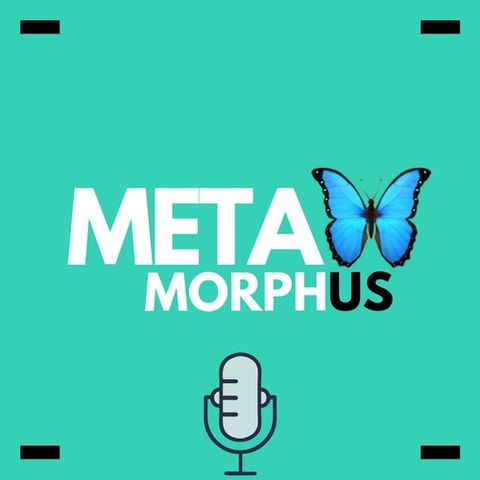Challenge #22 - Limit Your Intake of Processed Sugar
Jun 29, 2018 ·
6m 38s

Download and listen anywhere
Download your favorite episodes and enjoy them, wherever you are! Sign up or log in now to access offline listening.
Description
Challenge 22: Start eliminating your intake of sugar! Overeating, poor memory formation, learning disorders, depression—all have been linked in recent research to the over-consumption of sugar. And these linkages point...
show more
Challenge 22: Start eliminating your intake of sugar!
Overeating, poor memory formation, learning disorders, depression—all have been linked in recent research to the over-consumption of sugar. And these linkages point to a problem that is only beginning to be better understood: what our chronic intake of added sugar is doing to our brains.
According to the U.S. Department of Agriculture (USDA), the average American consumes 156 pounds of added sugar per year. That's five grocery store shelves loaded with 30 or so one pound bags of sugar each. If you find that hard to believe, that's probably because sugar is so ubiquitous in our diets that most of us have no idea how much we're consuming. The Centers for Disease Control (CDC) puts the amount at 27.5 teaspoons of sugar a day per capita, which translates to 440 calories—nearly one quarter of a typical 2000 calorie a day diet.
The key word in all of the stats is "added." While a healthy diet would contain a significant amount of naturally occurring sugar (in fruits and grains, for example), the problem is that we're chronically consuming much more added sugar in processed foods, generally in the rapidly absorbed form of fructose.
That's an important clarification because our brains need sugar every day to function. Brain cells require two times the energy needed by all the other cells in the body; roughly 10% of our total daily energy requirements. This energy is derived from glucose (blood sugar), the gasoline of our brains. Sugar is not the brain's enemy—added sugar is.
Research indicates that a diet high in added sugar reduces the production of a brain chemical known as brain-derived neurotrophic factor (BDNF). Without BDNF, our brains can't form new memories and we can't learn (or remember) much of anything. Levels of BDNF are particularly low in people with an impaired glucose metabolism—diabetics and pre-diabetics—and as the amount of BDNF decreases, sugar metabolism worsens.
Metamorphus is an organization dedicated to helping people using modern day tools in a world that's always changing. Our goal is to provide a free and accessible resource to those suffering from mental health worldwide. Together, we can revolutionize the mental health crisis that is unfolding today with your help.
You can expect helpful content like:
- Daily Lifestyle Challenges
- Introspective Interviews with Leading Professionals
- Healthy Living Tips & Advice
- Personal Mental Health Struggle Stories
Please contact us if you would like to chat, feedback, and guest queries.
Email - info@metamorphus.org
Website - metamorphus.org
Follow Us on Social Media
Instagram - https://www.instagram.com/metamorphus_org/
Twitter - https://twitter.com/Metamorphus_Org
Facebook - https://www.facebook.com/Metamorphus.org/
Mark Metry - https://www.instagram.com/markmetry/
Brendan Cutuli - https://www.instagram.com/cutulib/
show less
Overeating, poor memory formation, learning disorders, depression—all have been linked in recent research to the over-consumption of sugar. And these linkages point to a problem that is only beginning to be better understood: what our chronic intake of added sugar is doing to our brains.
According to the U.S. Department of Agriculture (USDA), the average American consumes 156 pounds of added sugar per year. That's five grocery store shelves loaded with 30 or so one pound bags of sugar each. If you find that hard to believe, that's probably because sugar is so ubiquitous in our diets that most of us have no idea how much we're consuming. The Centers for Disease Control (CDC) puts the amount at 27.5 teaspoons of sugar a day per capita, which translates to 440 calories—nearly one quarter of a typical 2000 calorie a day diet.
The key word in all of the stats is "added." While a healthy diet would contain a significant amount of naturally occurring sugar (in fruits and grains, for example), the problem is that we're chronically consuming much more added sugar in processed foods, generally in the rapidly absorbed form of fructose.
That's an important clarification because our brains need sugar every day to function. Brain cells require two times the energy needed by all the other cells in the body; roughly 10% of our total daily energy requirements. This energy is derived from glucose (blood sugar), the gasoline of our brains. Sugar is not the brain's enemy—added sugar is.
Research indicates that a diet high in added sugar reduces the production of a brain chemical known as brain-derived neurotrophic factor (BDNF). Without BDNF, our brains can't form new memories and we can't learn (or remember) much of anything. Levels of BDNF are particularly low in people with an impaired glucose metabolism—diabetics and pre-diabetics—and as the amount of BDNF decreases, sugar metabolism worsens.
Metamorphus is an organization dedicated to helping people using modern day tools in a world that's always changing. Our goal is to provide a free and accessible resource to those suffering from mental health worldwide. Together, we can revolutionize the mental health crisis that is unfolding today with your help.
You can expect helpful content like:
- Daily Lifestyle Challenges
- Introspective Interviews with Leading Professionals
- Healthy Living Tips & Advice
- Personal Mental Health Struggle Stories
Please contact us if you would like to chat, feedback, and guest queries.
Email - info@metamorphus.org
Website - metamorphus.org
Follow Us on Social Media
Instagram - https://www.instagram.com/metamorphus_org/
Twitter - https://twitter.com/Metamorphus_Org
Facebook - https://www.facebook.com/Metamorphus.org/
Mark Metry - https://www.instagram.com/markmetry/
Brendan Cutuli - https://www.instagram.com/cutulib/
Information
| Author | Brendan Cutuli |
| Organization | Brendan Cutuli |
| Website | - |
| Tags |
Copyright 2024 - Spreaker Inc. an iHeartMedia Company
